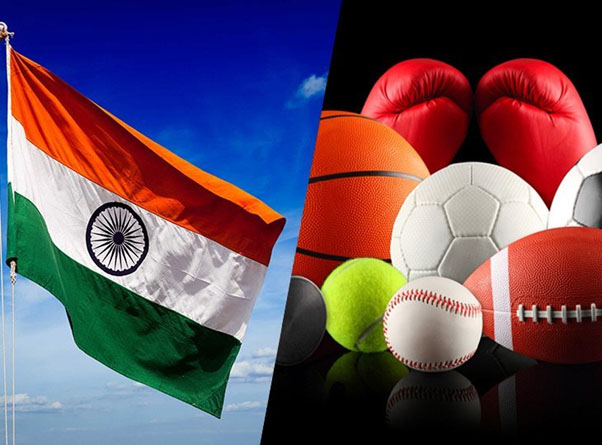Gambling business in India
The organization of gambling in India is only allowed in three places: Goa, Sikkim and Daman. It is also possible to obtain a license to operate a skill-based gaming business in the state of Nagaland. Technically, games that require the use of intelligence and skill are legal. Today it is being discussed whether poker can be classified as such.
India’s gambling market is highly regulated – only a few companies dominate. One of them, DeltaCorp, has received three of the six existing licenses available for offshore gaming in Goa. Casinos are only allowed as part of 5-star hotels – this creates a barrier to gaming. Overall, there is significant interest in gambling, but the country’s vast population still lacks access to it.
Gambling zones
Goa is the Indian capital of gambling, where the largest gambling complexes are located, namely: Deltin Royale, Casino Pride, Deltin Jaqk (formerly Casino Royale). A floating casino located on a large ship is gaining particular popularity in India.
The first land-based gambling complex in India called “Deltin Daman” was opened on November 30, 2017. It had over 1,500 gambling venues, 30 gambling tables and 1,000 slot machines.
Online gambling in India
As for the online gambling segment, the situation here is rather ambiguous. On the one hand, the local government does not provide for the issuance of licenses for gambling, and on the other hand, there is no legal framework that prohibits online gambling. The ambiguity over the legality of online gaming initially slowed market growth, but this is changing. According to a 2017 report, India’s gambling market is valued at $ 125 million.
However, there are regulations that can hinder the development of online platforms. For example, online poker platforms cannot receive foreign direct investment or partner with foreign organizations. In addition, the Indian government reserves the right to block foreign gambling resources, thereby limiting users from playing slots and betting on sports.
Sikkim is one of the few Indian provinces where gambling is regulated – a bill was passed in 2015 to amend the Sikkim gambling law to regulate gambling. Future Gaming Solutions India was the first to receive permission to conduct online gambling.
The Nagaland Online Skills Gaming Act of 2016 provides for licenses. The license application costs INR 50,000 ($ 725) and the annual fee is INR 1,000,000 ($ 14,517) per game or INR 2,500,000 ($ 36,293) for various games.
Income from gambling
Delta Corp chairman Jaidev Modi estimated the value of the gambling market in India at $ 75.7 million in August 2015. According to a 2016 report by research and consulting firm Global Market Advisors, the Indian market could perform much better. The GMA predicts that if the Indian market is well served, total gambling revenue could be around $ 10.2 billion by 2025, assuming sufficient gambling facilities open by 2021.
According to a 2017 report from trade and investment broker Motilal Oswal, the lottery market was valued at $ 12.5 billion and the annual horse racing turnover was $ 350 million. In addition, about $ 1.5 billion was wagered during one match at the Cricket World Cup. The population is interested in gambling, but the market is small.
Overall, India’s more than one billion people have a clear interest in betting and gambling, giving operators the opportunity to grow in the Indian market.
Legislation
In May, the Legislative Commission of India (LCI) issued 145 pages of guidelines on compulsory licensing and regulation of gambling nationwide. It was proposed to completely restrict the work of bookmakers on the Internet, which would help curb the growth of activity in the field of online betting. In its July report, the commission changed its mind. In July, the nonprofit association ESSA (Sports Betting Integrity), which represents the interests of sports betting operators around the world, said the method had been grossly ineffective. The restrictions only stimulated the proliferation of unlicensed rates. This was also confirmed by the commission itself. Now the only way to solve this problem is called reforming the legal framework.
According to Jaydeep Chakravartty, commercial director of the development company Ingenuity Gaming, the Indian gambling market brings in $ 150 billion per year. Most of the revenue comes from illegal gambling, which is controlled by criminal unions. It is obvious that the state does not receive profit from this. Despite the volume, Chakravarti cites the online betting sector as possibly the last untapped market in the world. So far, the bulk of domestic operators are working here, and international companies are just undergoing integration. The specialist is confident that India will follow the path of US regulation, where the market will be legalized through the states, and not at the federal or central levels.
In India, betting on horse racing and lotteries is allowed, others are banned. But the authorities do not set restrictions for foreign providers. Thus, more than 500 million active users make any kind of bets using the services of operators that are located or registered outside the country. The list of the most popular India betting sites can be found here. Based on the fact that foreign operators do not pay taxes, they can afford lower margins, that means more competitive odds.



